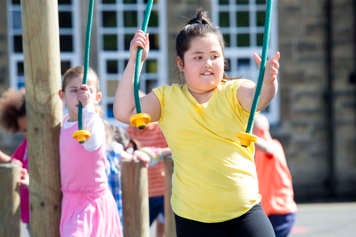What is body image?
Body image is how a person feels about and sees their body. People’s body image can be influenced by their own feelings and by the reactions of those around them.
When someone has a negative body image, they are not satisfied with their body. This is also known as body dissatisfaction.
Why body image matters
When your child or teen has a positive body image, they will be more likely to:
- feel good about their body
- exude confidence
- take care of the needs of their body
Body image and health
Culture and media have shaped the way people think about their bodies. Today, more children and teens are unsatisfied with the way they look than are satisfied. Body dissatisfaction affects 90% of women and girls and between 40% and 60% of men and boys. It has been seen in children as young as 5 years old.
Teens who are dissatisfied with their bodies are more likely to engage in unhealthy eating practices, such as restrictive dieting and binge eating. Both are forms of disordered eating, which is when a person knowingly ignores their internal cues of hunger and fullness. Disordered eating puts children and teens at risk of developing a range of eating problems, some of which can lead to eating disorders and obesity. Therefore, promoting a positive body image is key to supporting the overall health of your child or teen.
Defining a positive body image
People with a positive body image recognize and accept that:
- Healthy bodies come in different shapes and sizes.
- Body size and weight do not predict happiness, success, or health.
- People are more than numbers on a scale; every person is a unique individual with admirable talents, skills, and abilities.
- Images in the media are unrealistic and are created to sell products.
Parents’ role in promoting a positive body image
Parents and caregivers play a crucial role in the development of children’s attitudes and behaviours. Although a child’s body image can be influenced by their peers, the media, and other adults in their lives, it is parents who help to build a strong foundation for their child.
Before helping your child, it is important to understand your own attitudes towards food, exercise and your body. As a parent or caregiver, what messages are you sending?
- Are you dissatisfied with your shape, size, and weight? Do you talk about this?
- Are you always on, or going on, a diet?
- Do you express guilt when you eat certain foods?
- Do you make negative comments about the way other people look?
Tips for promoting a positive body image in your child
- Place less emphasis on your child’s appearance and more on their abilities and skills.
- Be a role model by accepting your body and maintaining a positive attitude towards food and exercise.
- Make time for family meals and enjoy the time spent together.
- Encourage your child to think critically about messages and images they see and hear in the media.
- Help your child understand that their body will change, especially throughout puberty.
- Promote activities that make your child feel good about themselves and that don’t focus on their appearance.
- Teach your child that it is OK to show emotions such as sadness, anger, and frustration.
